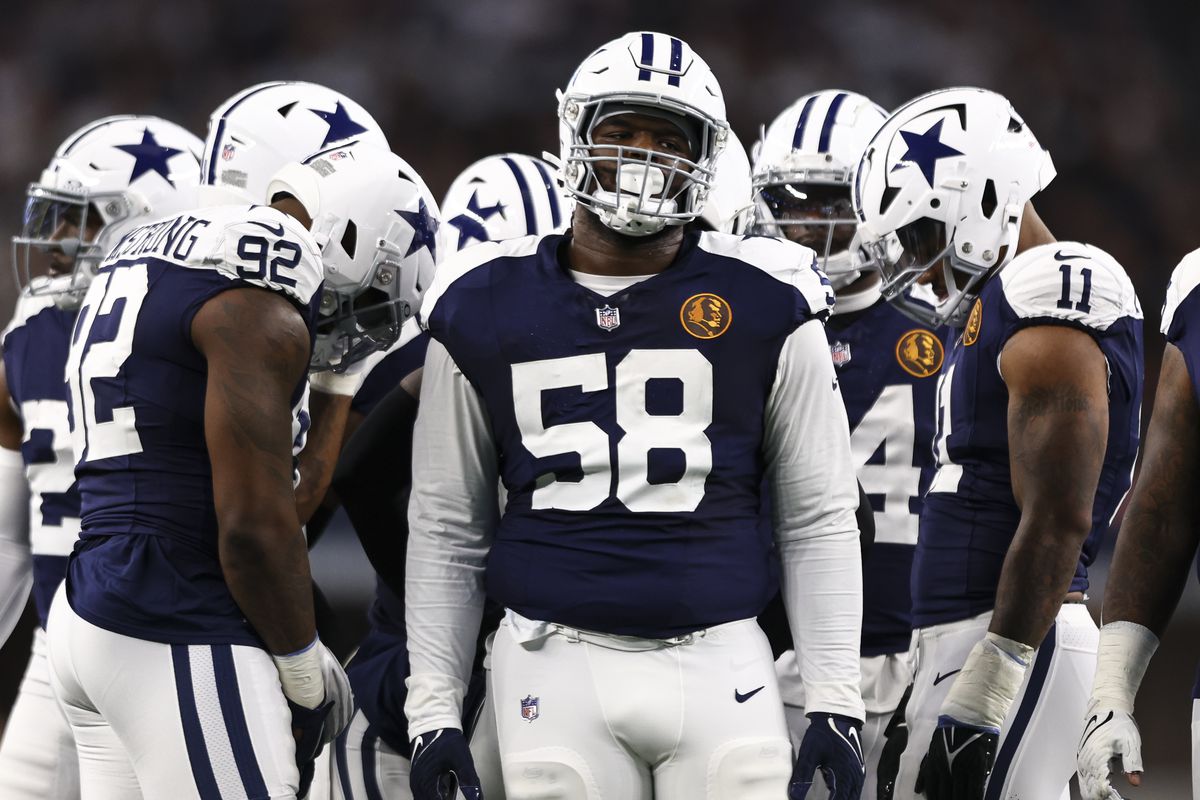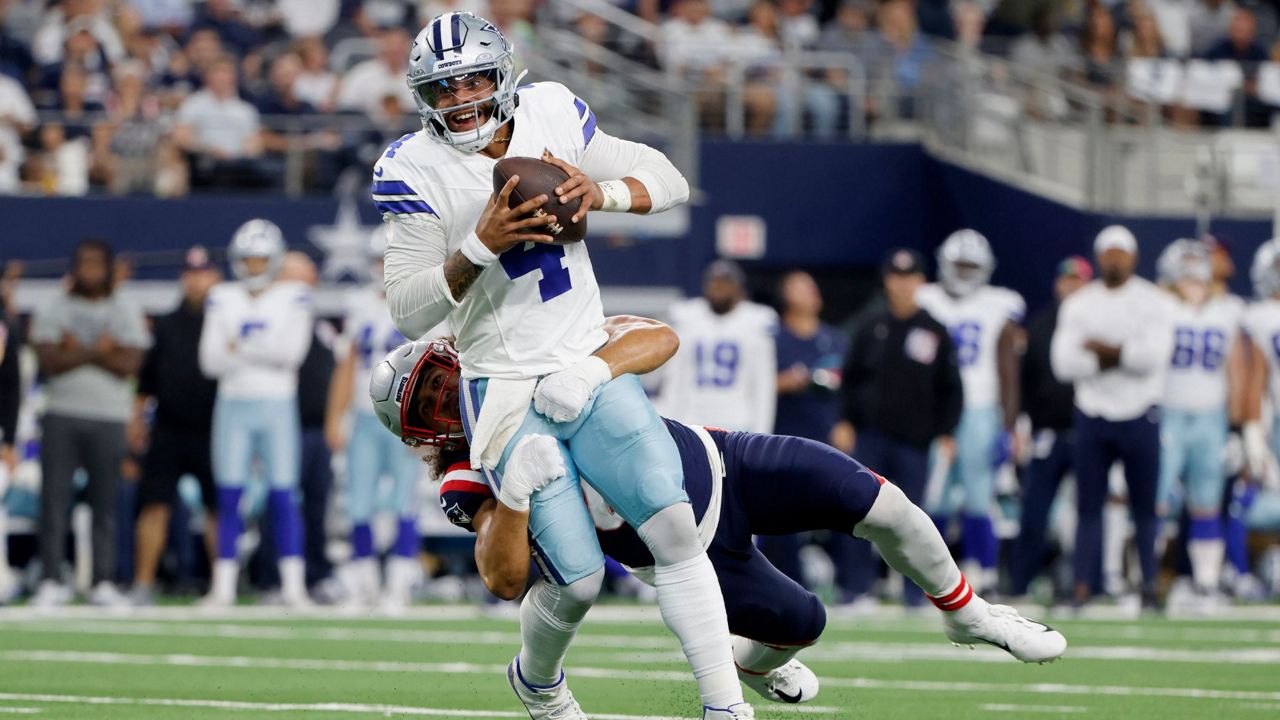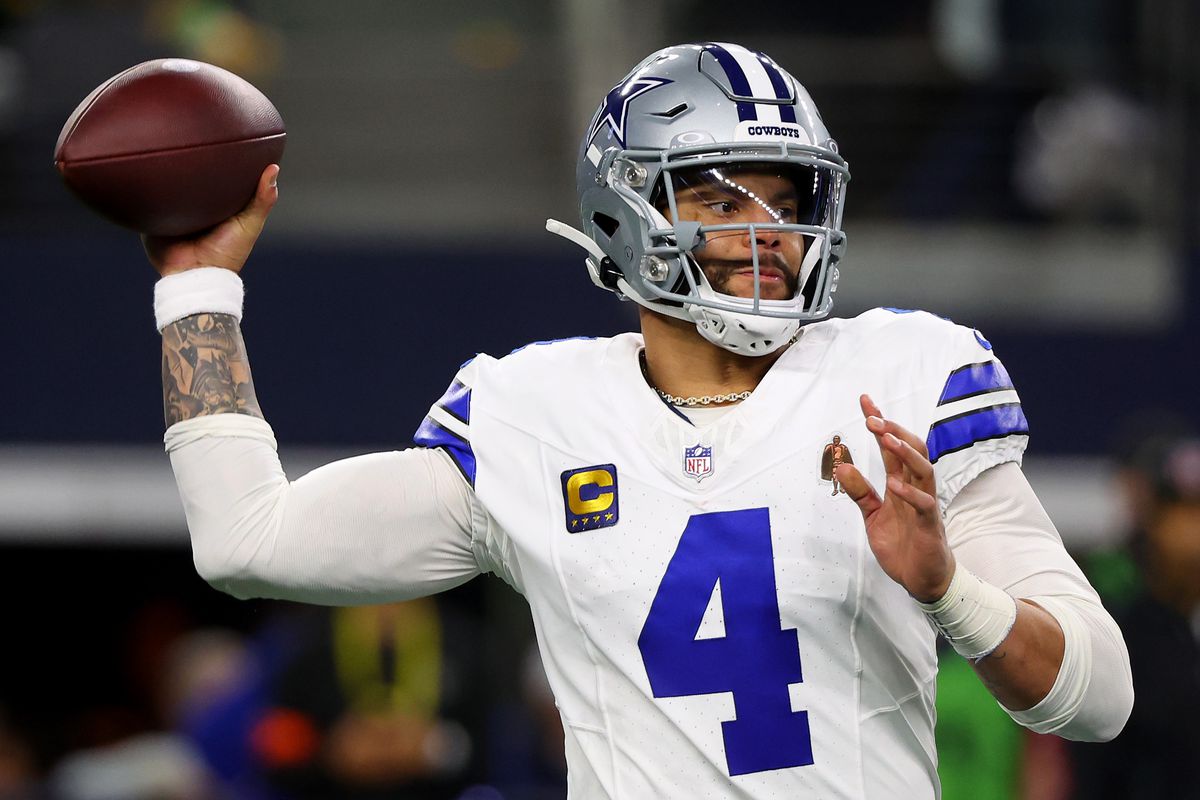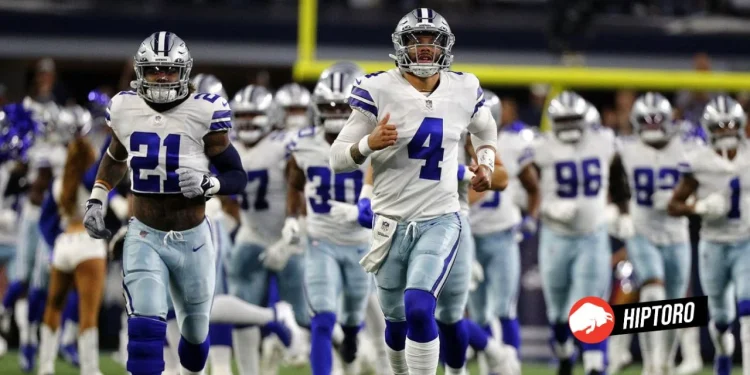The Dallas Cowboys, a team synonymous with American football prowess and significant fanfare, finds itself at the center of offseason scrutiny yet again. This scrutiny is not unwarranted; the franchise, led by the Jones family, has been marred by a nearly three-decade-long drought in postseason success. This season, the narrative has taken a particularly frustrating turn for fans and analysts alike.

Dallas Cowboys’ Stephen Jones Defends Frugal Offseason Amidst Financial Scrutiny
Stephen Jones, the Vice President of the Dallas Cowboys and son of owner Jerry Jones, recently faced the media to defend the team’s offseason strategy—or the apparent lack thereof. Speaking on 105.3 The Fan, a local Dallas sports radio station, Stephen attempted to justify the team’s financial strategy with a rather unconvincing explanation.
“We spend max, max money year in and year out. All 32 can only spend the same amount of money over a five-year stretch. When we’re all said and done, we max out our salary cap every year,” Jones explained.
Name one former Dallas cowboy player that should have won a Super Bowl
I’ll go first : jason witten pic.twitter.com/6WUj6NzrnP
— ✭ NICK ✭ (@nickc0488) April 18, 2024
However, this defense raises more questions than it answers. While it’s true that all NFL teams operate under a salary cap, effective management of this cap is crucial. Teams need to balance between immediate and future financial commitments to build a competitive squad.
According to OverTheCap, the Dallas Cowboys are slated to have spent the least amount of cash in the NFL for the years 2024 and 2025, ranking 29th for the 2026 season. This conservative spending has significant implications for the team’s ability to secure key players.
Dallas Cowboys’ Reactive Management Stalls Progress
The strategic errors do not stop at fiscal conservatism. The Cowboys seem to be caught in a cycle of reactive rather than proactive management. Stephen Jones highlighted the challenges of securing agreements with star players such as Dak Prescott, Micah Parsons, and CeeDee Lamb, noting the necessity to “hold money back if you want to have a realistic chance of signing those guys.”
Yet, this approach has shown little in the way of results. Prescott is set to become a free agent next year, and both Lamb and Parsons were notably absent from OTAs, signaling potential discontent.

Contrast this with the Philadelphia Eagles’ recent moves. The Eagles secured DeVonta Smith through 2028 with a $75 million contract extension, which includes $51 million guaranteed and a $20 million signing bonus. This kind of decisive action underscores a stark difference in team management philosophies and perhaps explains why the Eagles have found more success recently compared to the Cowboys.
Dallas Cowboys’ Financial Caution Hinders Progress
The Dallas Cowboys, despite being the world’s most valuable sports franchise, appear reluctant to make the financial commitments necessary to break their longstanding postseason curse. This hesitance may stem from a deeper organizational philosophy or perhaps a misinterpretation of the modern NFL’s financial landscape.

As it stands, the Dallas Cowboys‘ strategy seems to be a mix of financial prudence and operational hesitance, which might be costing them more than just money—it could be costing them their future.
The ongoing saga of the Dallas Cowboys’ offseason maneuvers provides a fascinating case study in sports management, team dynamics, and the high-stakes world of NFL finances. Fans and critics alike will be watching closely to see if and how the front office can adapt to the evolving demands of championship-caliber football.

Sources: Fansided









